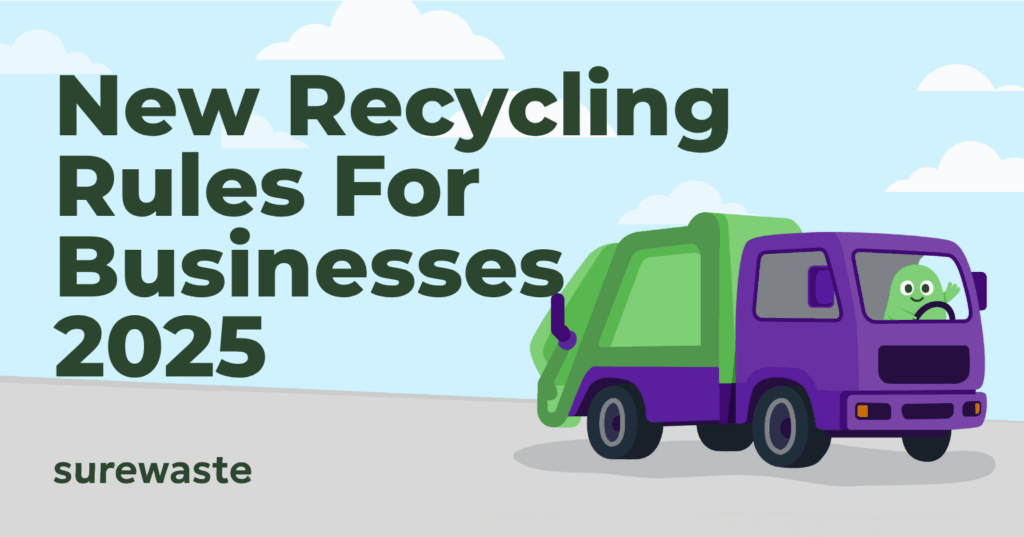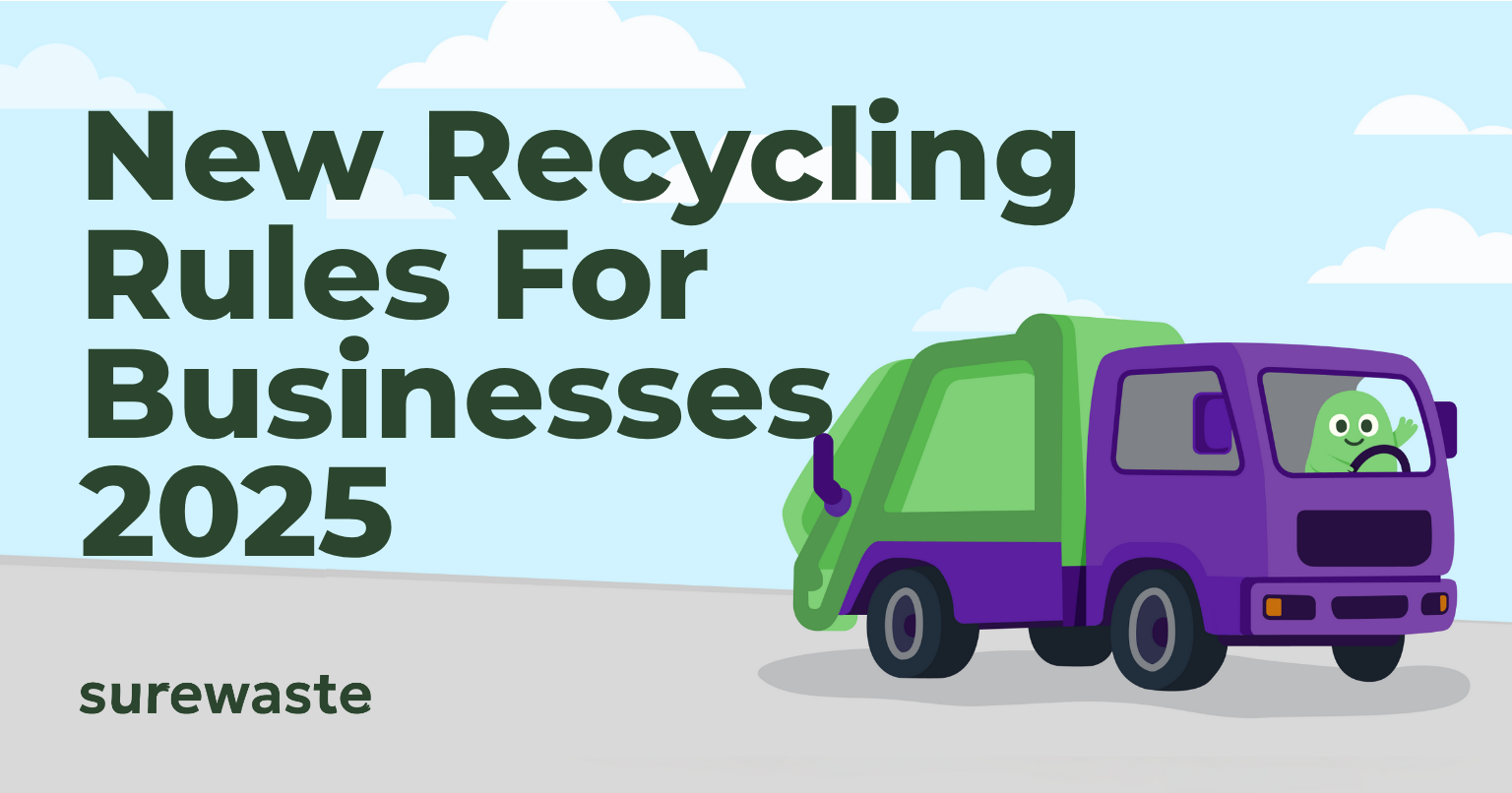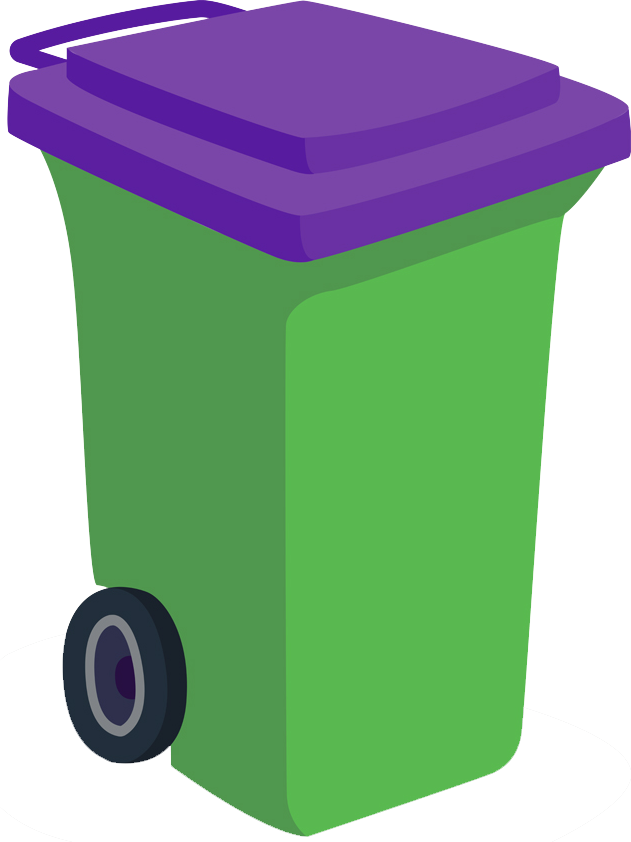Simpler Recycling for Businesses: What the 2025 Rules Mean for You

From March 2025, many businesses across England are now required to follow new recycling rules under the government’s “Simpler Recycling” reforms. If that sounds a bit vague or overwhelming, don’t worry – this blog breaks down what’s changed, what you need to do, and how to manage food waste requirements without any major disruption.

What Is Simpler Recycling?
Simpler Recycling is the government’s push to make business recycling clearer, fairer, and more consistent across England.
It’s part of the new recycling legislation for businesses in 2025, aiming to cut through the patchwork of local rules that previously caused confusion. Now, all councils must follow the same standards – meaning your business knows exactly what needs separating and when. It also supports broader waste disposal regulations for businesses UK-wide, encouraging a more joined-up approach to recycling.
What You Need to Separate – and When
Under the new recycling rules for businesses, you’ll need to separate your waste into three main streams:
- Dry recyclables: including paper, cardboard, plastic, glass, and metal
- Food waste: if your business produces any
- Residual waste: everything that can’t be recycled
These rules apply from March 2025 for businesses with 10 or more employees. Smaller businesses (fewer than 10 staff) have until March 2027 to comply.
There’s some flexibility built in: dry recyclables can be co-collected in one bin, and food and garden waste may also be collected together where suitable.

Who These Business Waste Regulations Affect
The new business recycling rules apply to a wide range of organisations – including offices, retailers, cafés, restaurants, schools, care homes, healthcare sites, transport hubs, and more. If your premises generate waste, these regulations likely apply.
If you have 10 or more full-time equivalent employees, this came into effect from March 2025. Smaller businesses and sole traders have a bit more breathing room, with requirements kicking in from March 2027.
These changes are part of broader trade waste regulations and are designed to align with wider waste disposal regulations for businesses UK-wide, making responsibilities clearer and more consistent across the board.

Separating Food Waste
As of March 2025, separating food waste is a legal requirement for any business that produces it – whether that’s leftover sandwich crusts in a staffroom or kitchen prep waste in a restaurant. If your business produces 5kg or more per week, you must arrange a separate collection through a licensed provider.
Collected food waste is treated through anaerobic digestion or composting, turning it into biogas or fertiliser. This is now firmly part of business recycling law, not just good practice.
How to Stay Compliant – Without the Stress
Staying on the right side of the new business waste regulations for 2025 doesn’t have to be a headache.
Start by auditing your current waste setup, then speak to a licensed waste provider to arrange separate collections and update your bins.
Ignoring the changes could lead to fines, reputational damage, or even legal trouble. Planning ahead now means fewer surprises later – and local providers can support you every step of the way, from staff training to tailored service plans.
Need a hand getting the hang of the new business recycling rules? Surewaste can help you understand what’s changing and what to do next. Use our savings calculator to see what similar businesses are paying, or request a quote to check your current setup.

